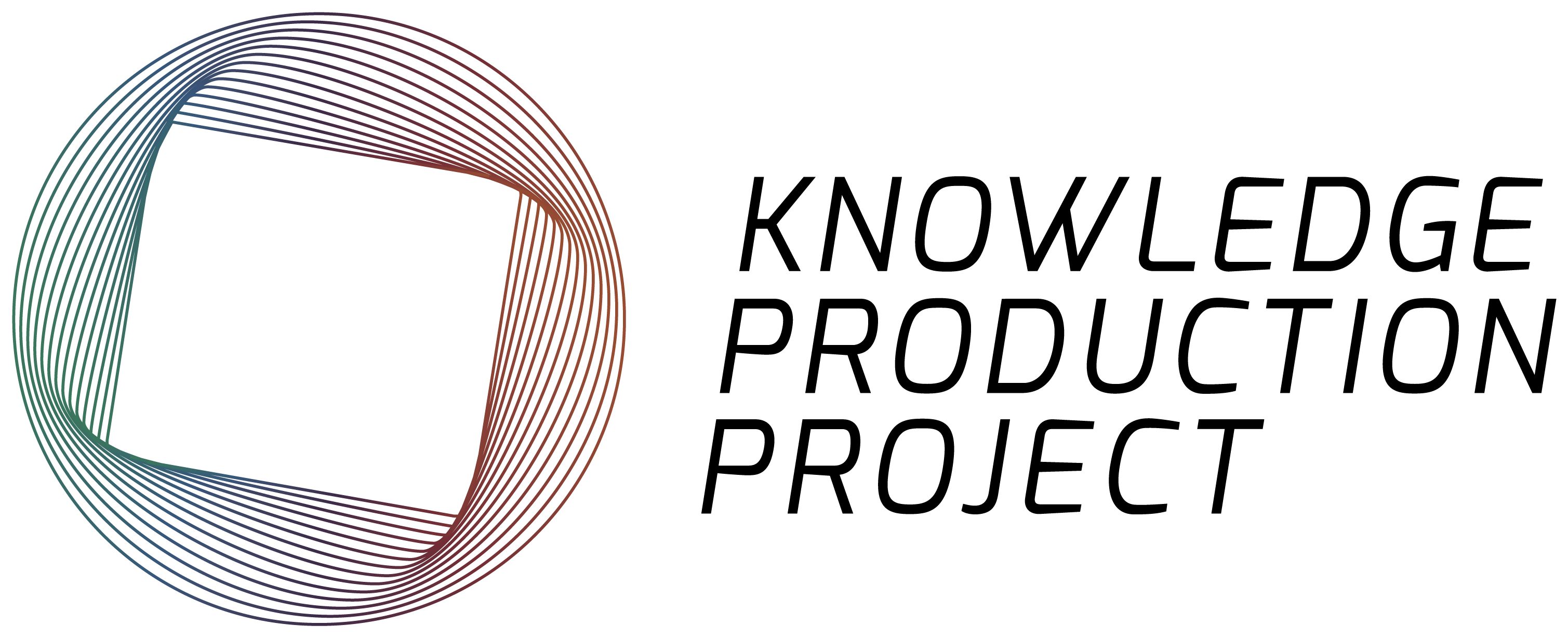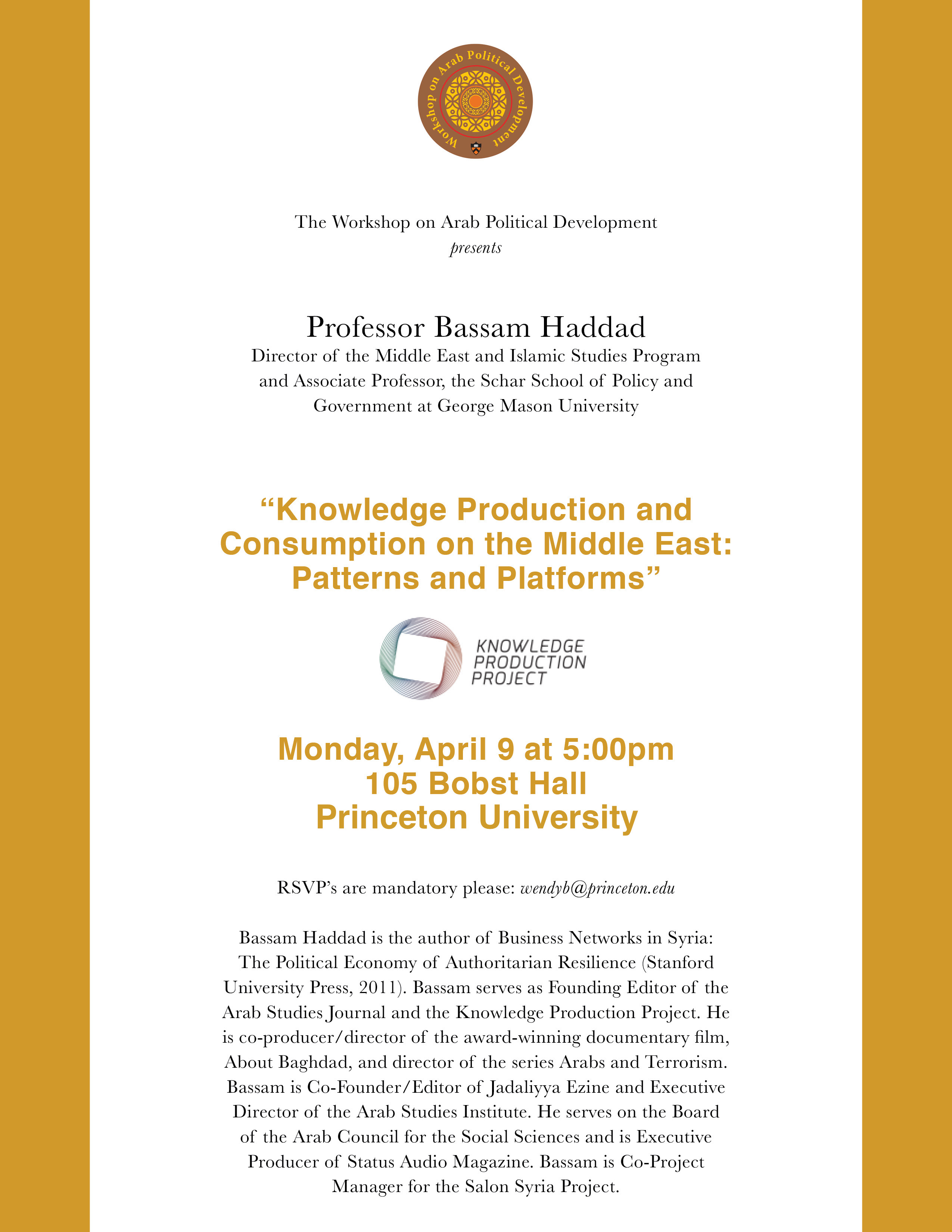The Workshop on Arab Political Development Presents
Professor Bassam Haddad
Director of the Middle East and Islamic Studies Program
and Associate Professor, the Schar School of Policy and Government
at George Mason University
"Knowledge Production and Consumption in the Middle East: Patterns and Platforms"
Monday, April 9 at 5:00pm
105 Bobst Hall
Princeton University
RSVP's are mandatory, space limited: wendyb@princeton.edu
Bassam Haddad is the author of Business Networks in Syria: The Political Economy of Authoritarian Resilience (Stanford University Press, 2011). Bassam serves as Founding Editor of the Arab Studies Journal and the Knowledge Production Project. He is co-producer/director of the award-winning documentary film, About Baghdad, and the director for the series Arabs and Terrorism. Bassam is Co-Founder/Editor of Jadaliyya e-zine and the Executive Director of the Arab Studies Institute. He serves on the Board of the Arab Council for the Social Sciences and is the Executive Producer of Status Audio Magazine. Bassam is Co-Project Manager for the Salon Syria Project.

